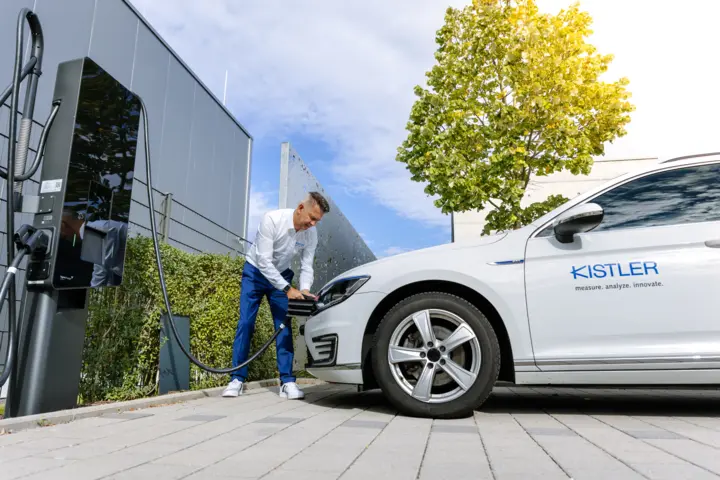Procurement and use of company vehicles in Germany are aligned towards e-mobility and minimal CO2 emissions.
Winterthur, December 2024 – More electricity from renewable sources, expansion of e-mobility, and the company’s own photovoltaic systems: in its latest Sustainability report, the Kistler Group guides readers through all the areas where the company is working to achieve its target of CO2 neutrality by 2030. These include the Group’s long-term commitment to its own workforce as well as responsible corporate governance. Kistler is also helping its customers to achieve their sustainability targets by providing measurement solutions to ensure resource-efficient production processes, safe infrastructures, and efficient motors and engines.
When it comes to sustainability, Kistler has set itself ambitious targets: the entire Group is set to become CO2-neutral by 2030, and its six largest production sites in Germany should achieve carbon neutrality as early as next year – with overall emissions already reduced by half. On the path to these targets, Kistler reduced its total emissions by around 1,135 metric tons of CO2 in 2023. “We have made huge progress towards our goal, and now we’re continuing our work in line with our strategy. In particular, electricity and e-mobility are our biggest cornerstones,” says Franziska Kunz, Sustainability & CSR Manager at the Kistler Group.
The company's commitment has taken it all the way into the final round of the German Sustainability Award 2025, and three of its products have also been nominated for honors. Thanks to precise data collected with these products and other measurement solutions from Kistler, users can optimize process steps, protect transport infrastructure against overloading, and develop efficient engines and motors for mobility in tomorrow’s world.





![[object Object] [object Object]](https://kistler.cdn.celum.cloud/SAPCommerce_CMSTeaser_560x375/sustainability-germany_49327.webp)
![Kistlers new sustainability report demonstrates measurable progress on the path to CO2 neutrality [object Object]](https://kistler.cdn.celum.cloud/SAPCommerce_Document_Preview/999-311e.webp)
![Kistler Group Sustainability Report [object Object]](https://kistler.cdn.celum.cloud/SAPCommerce_Document_Preview/961-635e.webp)